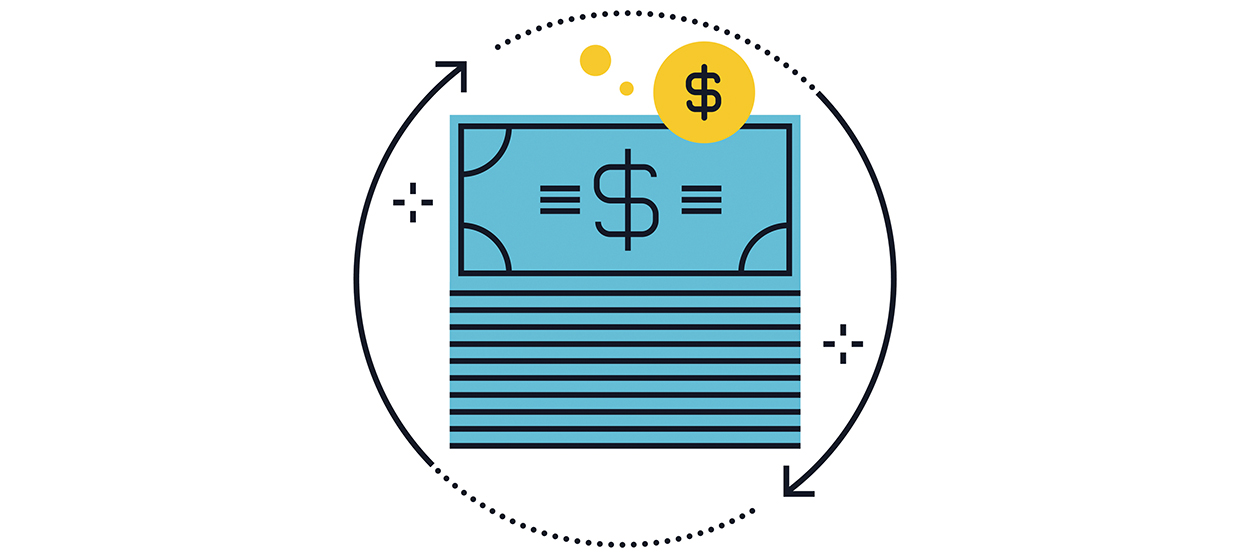The good and bad of 401(k) rollovers
When you move on from your employer, you don't always want to move your money too

A free daily email with the biggest news stories of the day – and the best features from TheWeek.com
You are now subscribed
Your newsletter sign-up was successful
"If you are moving on from your employer, shouldn't your money move on as well?" asked Peter Lazaroff at The Wall Street Journal. Rolling a 401(k) into an individual retirement account when you leave a job is an "automatic move for many investors," but there are times when it makes more sense to leave your money where it is. The most important thing to consider is expenses. It could be that your current 401(k) plan is cheaper than an IRA. If the company you're leaving has more than 50 employees, there's a "good chance" that your plan's all-in cost — which includes fund expenses, adviser fees, and administration costs — is less than 1 percent. This information is listed in your plan's quarterly statements. If a financial adviser recommends rolling over your 401(k) into an IRA, "you should ask what the all-in cost is to you."
A 401(k) plan also comes with some perks that an IRA doesn't, said Sandra Block at Kiplinger. Sticking with your current 401(k) plan might make sense if you're going to retire early. Generally, retirees have to pay a 10 percent early-withdrawal penalty for taking money out of an IRA or 401(k) before age 591/2. But "workers who leave their jobs in the calendar year they turn 55 or later can take penalty-free withdrawals from that employer's 401(k) plan." Your 401(k) assets are also shielded from lawsuits and creditors; "IRAs don't offer that same level of protection." However, if you've changed jobs frequently, consolidating your plans in an IRA "could help you streamline your investments." IRAs also tend to offer more flexibility when it comes to making withdrawals or selling investments.
Take your time with the decision, said Jeff Rose at Forbes. There's no deadline to roll over your 401(k) plan, and your former employer can't tell you how to handle the cash inside your account. "Even if your employer sends a letter suggesting you consider your options, they cannot compel you to do anything you don't want." There's one big exception, said Ron Lieber at The New York Times. Employers can automatically roll over any 401(k) account that accumulated $5,000 or less in savings while the employee worked at the company. Regulations stipulate that the money be moved into "safe" investments, often a low-yielding money-market account. Over time, the fees on these low-earning accounts can easily eat up a small investment. "So if you're leaving a job and you get a letter from your 401(k) administrator telling you that your money will end up in one of these IRAs if you don't act — well, act."
The Week
Escape your echo chamber. Get the facts behind the news, plus analysis from multiple perspectives.

Sign up for The Week's Free Newsletters
From our morning news briefing to a weekly Good News Newsletter, get the best of The Week delivered directly to your inbox.
From our morning news briefing to a weekly Good News Newsletter, get the best of The Week delivered directly to your inbox.
A free daily email with the biggest news stories of the day – and the best features from TheWeek.com
-
 Political cartoons for February 16
Political cartoons for February 16Cartoons Monday’s political cartoons include President's Day, a valentine from the Epstein files, and more
-
 Regent Hong Kong: a tranquil haven with a prime waterfront spot
Regent Hong Kong: a tranquil haven with a prime waterfront spotThe Week Recommends The trendy hotel recently underwent an extensive two-year revamp
-
 The problem with diagnosing profound autism
The problem with diagnosing profound autismThe Explainer Experts are reconsidering the idea of autism as a spectrum, which could impact diagnoses and policy making for the condition